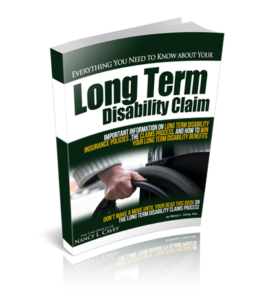Filing A Lawsuit
Once the internal appeals process is exhausted, you’ll have the right to file a lawsuit in Federal court. However, no additional evidence can be submitted. The Judge is limited to reviewing the claims file. There are no depositions, hearings or even trials. That means that neither you or your treating physician is going to be able to testify.
The court will simply review the medical and vocational proof in the claims file. The appeals letter is, quite frankly, your trial and that’s why it’s crucial that you have an experienced disability attorney represent you in the appeals process.
How Federal Judges Handle These Cases
In most ERISA governed cases, the Federal court must defer to the long term disability decision so long as there is a “rational basis” or a “reasoned explanation for the decision.”
The Federal court will only overturn the insurance company’s denial, if you can show the denial is “arbitrary and capricious.” Even if you’ve been accepted as being disabled by the Social Security Administration, the long term disability carrier isn’t bound by that determination. The discretionary clause in the disability insurance company is their “get out of jail free card.”
When you file a lawsuit the best you can hope for is to recover the past due benefits that you are owned and have your monthly disability check reinstated. Unfortunately, there are no bad faith or punitive damages and attorney fees are rarely awarded. Most cases settle for 10% to 50% of the past and future value of your benefits.
Action Steps To Take
Let’s be frank. Long term disability insurance claims are complicated. There are short deadlines and the appeal is your trial. There are a number of legal issues in many appeals including limitations, benefits due to mental illness or self reported conditions, exclusions for pre-existing conditions and even arguments about overpayments or reduction of benefits.
You would owe it to yourself to get help with your long term disability claim, appeal or lawsuit regardless of whether or not your long term disability policy is a group sponsored long term disability plan or an individual disability income policy.
Contact Florida long term disability attorney, Nancy Cavey, who has helped hundreds of people with the long term disability insurance. She’ll personally consult with you, review your claim, prepare your appeal, and if necessary, file suit and represent you in court.
You purchased a long term disability policy to provide you with peace of mind. But, when you least can afford it, your disability carrier has denied your benefits and has rejected your appeal.
Your next and only recourse is to hire an ERISA/long term disability attorney to sue your long term disability carrier. Your attorney will file what is called a complaint which outlines the facts of your case and why you are entitled to benefits. There generally is no activity for 60 to 90 days after a claim is filed. Why? The complaint is filed and then served on a defendant who, in turn, has to “answer” the complaint within 20  days after the lawsuit is filed.
days after the lawsuit is filed.
Their “answer” is nothing more than the formal denial of the allegations of the complaint.
After the answer is filed, the court will issue a scheduling conference order directing the attorneys to confer about the scheduling of events in your case including, taking depositions, disclosing experts, filing motions, mediation, pretrial and trial.
The scheduling conference takes place about two to three months after the law suit is filed and establishes a time table for the parties to complete the discovery, conduct mediation and have a trial date.
Each court has their own local rules. These dates might vary depending on where you live. In any event, it may seem that nothing is happening until the scheduling conference. And, quite frankly, that’s incorrect. Many ERISA long term disability attorneys are drafting what’s called interrogatories and requests to produce which they can file as soon as the scheduling conference order is issued.
Need Help With Your ERISA Lawsuit? Contact Our Florida Long Term Disability Lawyer Today
You can learn more about the ERISA mediation process by contacting ERISA disability attorney Nancy Cavey who can help you with your claim regardless of where you live in the United States.





 days after the lawsuit is filed.
days after the lawsuit is filed.